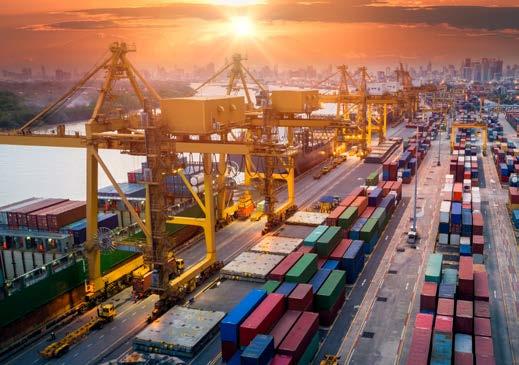
1 minute read
Sleuths Leave supply-chain disruption behind
from SPN June 2023
by spnews.com

In the face of increasing disruptions, organisations of all sizes need to speed up their transformation initiatives to increase flexibility, agility and visibility to achieve a truly resilient supply chain. Digitising supply chains through modern integration, automation and secure and connected ecosystems, makes it easy to manage information flows and uncover the insights, to ensure continued operations, even in the face of major disruptions.
Advertisement
Disruption alongside increasing economic pressures to decrease costs, without reducing business outcomes, is driving the need for greater digital transformation and supply chain optimisation. In fact, 91% of business leaders believe their company has a responsibility to act on ESG issues[1], driving the need to ensure sustainable, ethical supply chains. Going forward, organizations that understand and act on customer expectations around ethical, sustainable sourcing will demonstrate leadership in environmental, social and governance (ESG).
Furthermore, 50%+ of companies lack end-to-end supply chain visibility[2], leading companies to add oversight to their supply chain to mitigate disruption risk. Organisations need Control Towers to better monitor transaction flows to create a transparent, agile, resilient supply chain that mitigates risk across the entire ecosystem.
Circular Economy Boost
More than 95% of executives agree that the circular economy poses an opportunity for their organisation, increasing the focus on complete product lifecycle processes. Intelligent, connected and secure business network platforms alongside innovative technologies are the key to closing the circularity gap and evolving business models for the circular economy.
To achieve Autonomous Supply Chains a company needs vision. This became evident when 72% of suppliers that experienced a supply chain disruption lacked the visibility to come up with a fast and effective solution, thus highlighting a need for better insights. Organisations need to use analytics, artificial intelligence and machine learning to avoid disruptions and create autonomous, resilient supply chains.
- Extracts courtesy of OpenText










